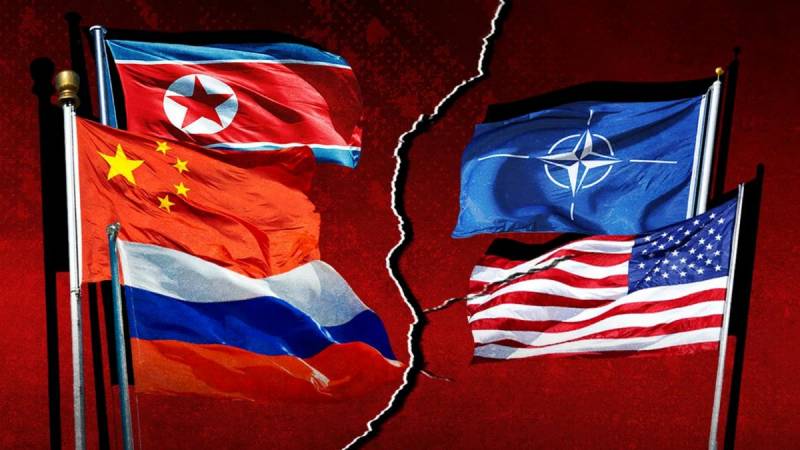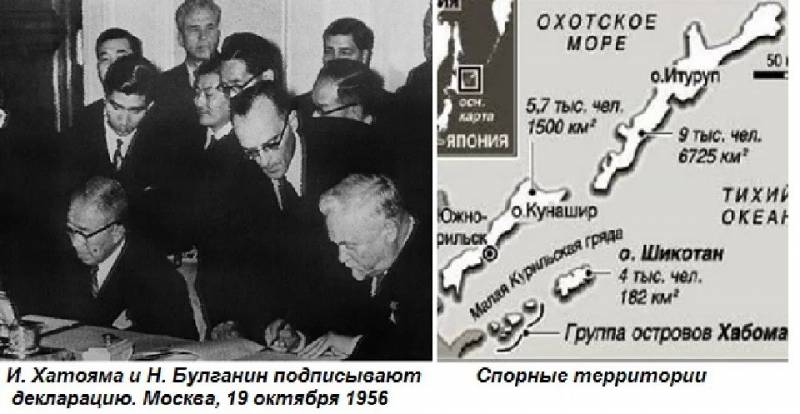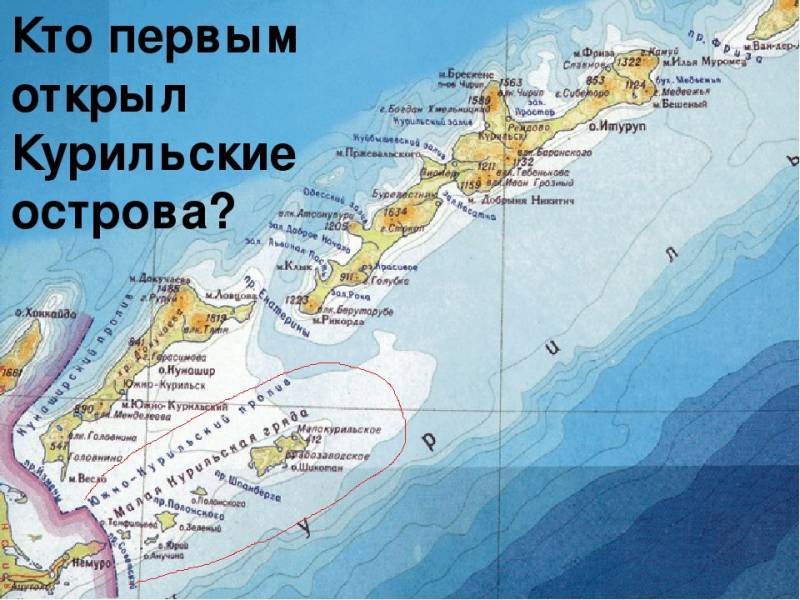An old Beijing joke about free Kuriles and free Korea

Analysts of the Ukrainian Center for International Studies, located, as it should be, in Kyiv, recently made an extremely original forecast, for someone, perhaps, unexpected and even shocking. It refers to the fact that the Russian Federation, China and the DPRK "... have a common goal: to create an anti-Western world order."
The claims of the current Ukrainian ideologists for an exclusive European status and some kind of universal primogeniture, it seems, simply push towards such assessments. What is called - everyone is judged by themselves.
However, in relation to the PRC and modern Russian-Chinese relations, the assessment made is most likely very close to the objective one. This is if everything is calculated and measured in a general geopolitical context. But somehow it doesn’t fit in the Far East ...
Recall that back in 1964, the PRC issued a declaration in support of the unambiguously Japanese affiliation of the entire Kuril archipelago. Given this approach, is it any wonder the sharp aggravation that happened just then in the relationship between the two communist superpowers.
A short time later, in 1973, at the 1978th Congress of the Communist Party of China, Premier Zhou Enlai accused the USSR of abandoning "the former promises of the Soviet revisionists to return" the South Kuriles to Japan. As early as XNUMX, when the actually termless Japanese-Chinese Friendship Treaty was signed, and then and later, Beijing assured Tokyo over and over again of the unchanged position of the PRC on the South Kuriles.
Since the second half of the 80s. and after the collapse of the USSR, the Chinese side prefers not to speak officially about the status of these islands. Russia, on the other hand, has been in no hurry to demand a “determination” for many years, and, accordingly, we can assume that the aforementioned position of Beijing has hardly changed.
In any case, in the Chinese press, the Russian Kuriles are still regularly referred to in Japanese as “northern territories”.
However, in response to the statement of the US Ambassador to Japan Emmanuel Rahm on February 9, 2022, about the unified position of Washington and Tokyo regarding the illegitimacy of the Soviet-Russian status of the South Kuriles, the Chinese Foreign Ministry on February 11, 2022 very defiantly distanced itself from the position of the Russian Federation on this issue:
At the same time, the DPRK, which in the West is considered to be a veiled satellite of China, initially supported and still supports Moscow's position on the South Kuriles. This was confirmed back in 1956, when the Soviet-Japanese declaration of October 19 was signed in Moscow, which designated the transfer - namely the transfer (but not the return ...) of Japan of the two islands of the South Kuril ridge.

As you know, the condition for such a transfer from the Soviet side was that it would take place only after the signing of a peace treaty between the USSR and Japan. This declaration for the first time outlined a possible redistribution of the post-war Far East-Pacific borders in favor of Japan.
In addition, the “prospect” of the transfer of the South Kuril Islands of Habomai and Shikotan to Japan in itself meant a green light for Japanese claims to a number of Chinese and Korean islands (Diaoyudao and Tokto, respectively). They are located on the strategic arteries between the East Asian seas and the Pacific Ocean, which today acquires a very special meaning.
However, let us repeat that Tokyo began to put forward its claims to the South Kuriles (to begin with), we note, precisely after the aforementioned Soviet-Japanese declaration. At the same time, according to a number of data, Kim Il Sung, the then leader of North Korea, sent a still unpublished letter to Moscow in November 1956.
There is information, which is considered unverified, that the letter was sharply negative in terms of the regional consequences of Japan's island promises from the USSR. And this assessment is fully confirmed by all subsequent events.
The first of these was such an unambiguous proposal by the head of the DPRK - in negotiations with the Soviet and Chinese delegations, he proposed organizing a Far Eastern analogue of the Helsinki Act. The idea was really sound - to collectively fix the inviolability of the post-war borders in the Far East. But Moscow and Beijing did not react to this initiative in any way.
A characteristic detail: despite the constant tough confrontation between Beijing and Taipei and at the same time Pyongyang with Seoul, we emphasize that all of them were invariably united in opposing Japanese claims to the Chinese and Korean islands. And almost together we are ready to jointly defend the territorial integrity of China and Korea.

And Japan has been convinced of this more than once. However, its islands are not the Russian Kuriles, and meanwhile the Russian Federation, itself under unprecedented pressure from the West, still regularly complies with US and UN sanctions against the DPRK.
And this despite the fact that Pyongyang is almost the only one in the world and almost the first to officially recognize the Russian status of Crimea, the independence of the DPR-LPR and their inclusion in Russia. North Korea has consistently provided political support to Russia in the UN.
So, it is hardly worth taking the participation of North Korea in the pro-Russian anti-Western alliance as something ambiguous…
Information